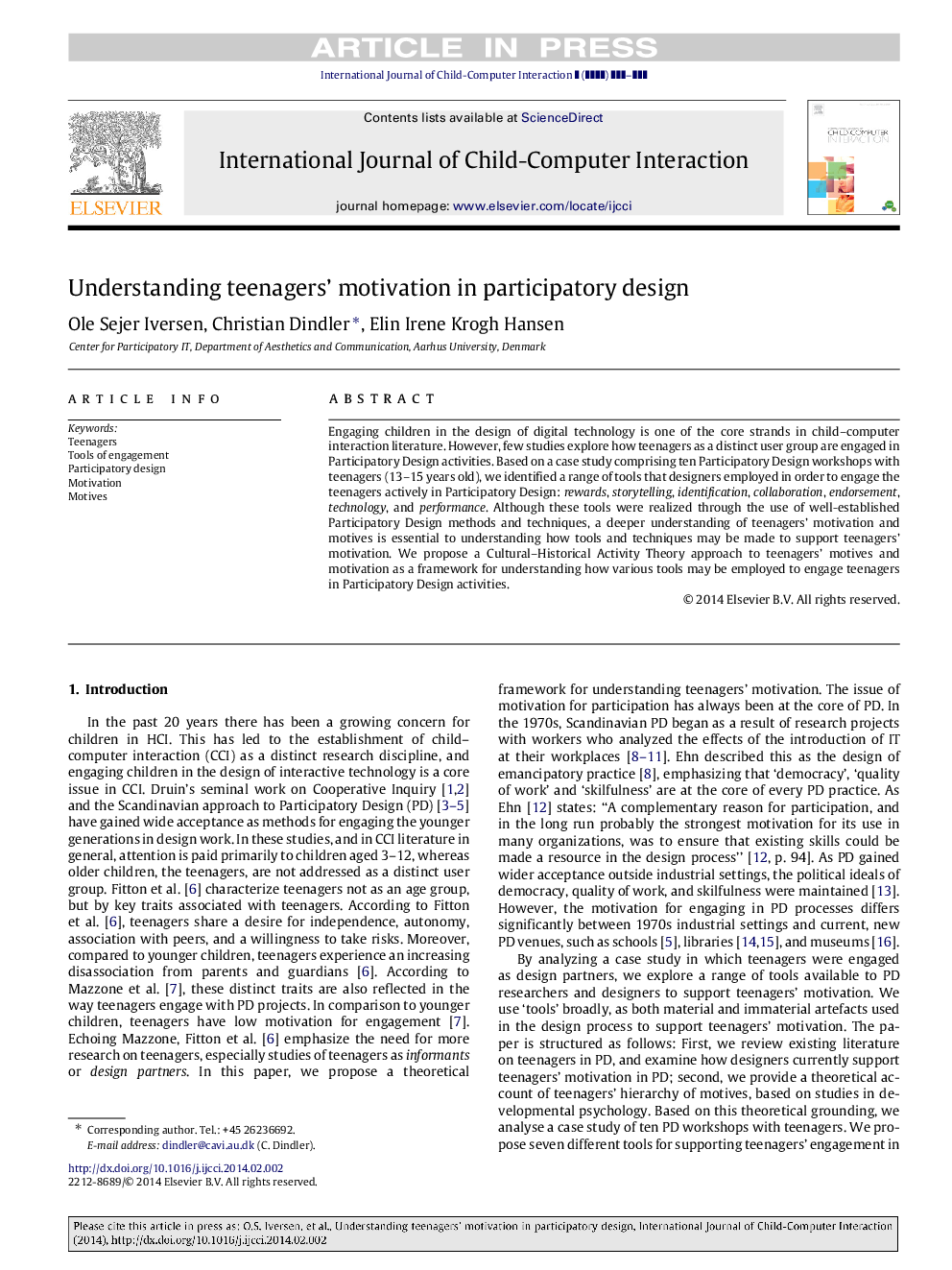| Article ID | Journal | Published Year | Pages | File Type |
|---|---|---|---|---|
| 6795287 | International Journal of Child-Computer Interaction | 2013 | 6 Pages |
Abstract
Engaging children in the design of digital technology is one of the core strands in child-computer interaction literature. However, few studies explore how teenagers as a distinct user group are engaged in Participatory Design activities. Based on a case study comprising ten Participatory Design workshops with teenagers (13-15Â years old), we identified a range of tools that designers employed in order to engage the teenagers actively in Participatory Design: rewards, storytelling, identification, collaboration, endorsement, technology, and performance. Although these tools were realized through the use of well-established Participatory Design methods and techniques, a deeper understanding of teenagers' motivation and motives is essential to understanding how tools and techniques may be made to support teenagers' motivation. We propose a Cultural-Historical Activity Theory approach to teenagers' motives and motivation as a framework for understanding how various tools may be employed to engage teenagers in Participatory Design activities.
Related Topics
Physical Sciences and Engineering
Computer Science
Human-Computer Interaction
Authors
Ole Sejer Iversen, Christian Dindler, Elin Irene Krogh Hansen,
